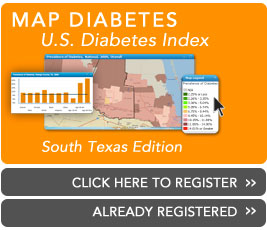How Hispanics Will (Unintentionally) Bring About Significant Shifts in Healthcare
News Thursday, October 27th, 2011Stephen Palacio- Executive Vice President, Director Hispanic Practice – Huffington Post: High sugar consumption is a large contributor to Hispanic diabetes. States may be forced to look at various “consumption” taxes to curb disease rates.
How will Texas, with 38% of Hispanics uninsured, and California, with 29% of Hispanics uninsured, handle the coming influx of Hispanic healthcare consumers? Truth is — no one really knows. The impact, however, will be enormous, and the system is not ready to handle it.
When the federal health care law is enacted in 2014, demand for services will dramatically increase. To meet the new demand, adequate supply must be available to avoid significant bottlenecks. That supply must include Spanish speaking doctors, nurses, administrators, and customer support networks. Without a long-range plan to care for Hispanics, people will be on the insurance rolls but will not be managing their health effectively, which will metastasize into costly situations.
Take a look at Massachusetts, which adopted the Universal Health Care Act in 2007:
“The largest increases in insurance coverage were among Hispanic respondents overall and Hispanic respondents who answered the survey in Spanish. Traditionally, a larger proportion of Hispanics in Massachusetts have lacked access to health care, compared with other racial/ethnic populations (9,10). The results showed an 18.4% increase for persons responding in Spanish and a 14.2% increase for Hispanics overall. However, despite these increases, Hispanics continued to have the lowest health insurance coverage and the lowest percentage of persons with a personal health-care provider than any other subpopulation……One reason might be that more time is needed for the effects of improved health-care access to be realized in these groups. Another reason might be that health-care providers are not equally accessible for certain groups or in certain areas of the state. Although the cost of a doctor visit might also be a factor, 2008 BRFSS data have shown that only 6% of all respondents reported that they were unable to visit a doctor during the past year because of cost, compared with 8% in 2006 (9). “




























